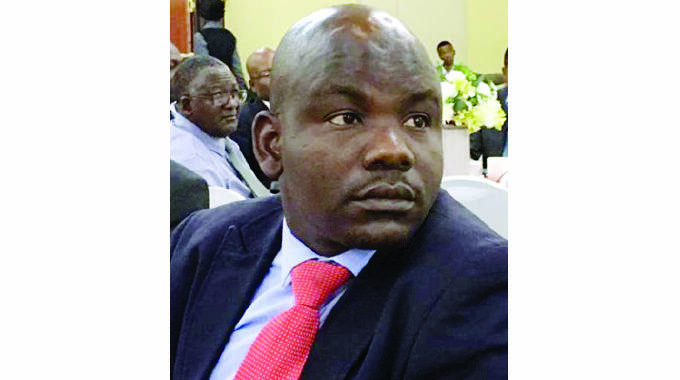RBF initiative helps underprivileged women receive free maternity health care

Lungelo Ndhlovu
BY lowering maternal and neonatal deaths, the Results-Based Financing (RBF) programme, whose main objective is to improve the accessibility, availability and quality of maternal, neonatal and child health care in Zimbabwe, is promoting community confidence in the quality of care offered at local clinics in Bulawayo.
One of the programme’s advantages is that underprivileged women now have free access to maternity health care.
Dr Khulamuzi Nyathi, senior administrative officer at the Bulawayo Health Services Department, stated recently at the RBF Urban Vouchers Councillors Sensitisation meeting in Bulawayo that women are no longer compelled to give birth at home due to budgetary constraints.
“The long-term benefit of this programme is that it’s easier to obtain a birth record for a child delivered at a health facility than at home, making it easier for that child to enrol in school,” he explained.
The RBF initiative started as a pilot in Nkulumane District in 2014 with the participation of clinics such as Sizinda and Tshabalala. It later expanded over time to include Pelandaba, part of Njube, Lobengula, Nketa and Emganwini.
“The RBF programme introduced a finance system designed to shield poor women from financial ruin as a result of maternal and neonatal child death. This programme is primarily concerned with supporting those who are vulnerable. The beautiful thing about this initiative is that it began with women, expectant mothers and people who are vulnerable,” said Dr Nyathi.
Bulawayo Mayor Councillor Solomon Mguni said the RBF initiative would also ensure that the city enhances its citizens’ quality of life in order to attain Sustainable Development Goal 3; good health and well-being, to ensure healthy lifestyles and promote well-being for all ages.
“I’m informed that the results-based financing (RBF) approach is an umbrella term that occupies a particularly important place in the debates regarding meeting the challenges of ‘better health for all at all ages’ as stated in the Sustainable Development Goals 3 (formerly the Millennium Development Goals, SDG 4 and 5),” he said.
The mayor indicated that since 2011, Zimbabwe has been implementing a result-based financing programme to improve the country’s maternal and child health care.
“The Urban Voucher was designed in 2014 with World Bank funding as a sub-component of the National Result-based financing programme under the Health Support Development Support Project (HSDSP) to strengthen the management of urban sub-health systems on both the supply and demand sides,” he said.

Mayor Solomon Mguni
According to World Health Organisation (WHO) data, 12 million Zimbabwean girls marry before the age of 18, and pregnancy and childbirth are the leading causes of death for females between the ages of 15 and 19.
Ward 17 Councillor Sikhululekile Moyo raised concern about teen pregnancy in the country.
“The issue of poverty is a key driver of teenage pregnancies and it must be addressed promptly,” she said.
Bulawayo Health Services department officials said money accruable from both tax and non-tax sources, such as the Aids levy and the given percent levy on mobile airtime data is the primary source of revenue for Government health expenses.
“In addition to donors and partners, local authorities generate revenue by charging rates, taxes, licences and user fees for the services they provide,” said Dr Nyathi.
The Urban RBF Voucher programme has resulted in higher-quality client services as indicated by comments from community-based organisations, according to Dr Nyathi.
“Staff incentives increased employee morale, which improved service delivery. Through Health Centre Committees (HCCs), social values and civic objectives are promoted in communities as well as building of community trust in the services provided by nearby clinics,” he said.
Additionally, resources have been provided to social workers so that they can carry out their responsibilities in a professional manner. Infrastructure upgrades are being made at health facilities, Dr Nyathi added.
Councillor Siboniso Khumalo, an Alderman, concurred that the RBF programme had improved quality of services at Maqhawe Clinic.
“I can confirm that progress has been made. For instance, car batteries were being stolen from clients who parked their vehicles at the facility. RBF should be commended for erecting a fence at the facility. Residents seem to understand the programme and I usually explain the RBF programme to women at funerals,” he said.
The RBF subsidy, according to Sister Sithokozile Hove, the Bulawayo City Council’s Chief Nursing Officer, was used to purchase furniture and benches for Luveve Clinic and erect a perimeter wall at Nkulumane. A waiting shed and patient lockers were also put up.
“The RBF programme assists us a lot in the procurement of medicines which we can’t get from Natpharm for our local clinics,” said Sr Hove.
She said the RBF project provides subsidies to clinics and hospitals based on their performance in providing a package of free health services to pregnant women and children under the age of five.
“The voucher programme has ensured the availability of medicines and other consumables as well as improve infrastructure. The subsidies have also provided staff incentives resulting in improved morale, improved quality of service and commitment to work among other positives,” said Sr Hove.
Other councillors said residents were concerned that pregnant women are being whisked to institutions such as Mpilo Central Hospital after arriving at council clinics.
“That’s normal practice and local nurses at clinics would have noticed that the problem needs a doctor or the woman has to deliver through a C-section,” said Sr Hove.
There are now 11 sites where the RBF programme is in use (Harare Southern and Nkulumane District). The first stage of scale-up will involve 12 sites (Harare 8 and Bulawayo 4).
Another 12 facilities will be constructed in the second phase bringing the total to 35.
A total of $7,3 million has been allocated for the programme under Additional Financing.
The Government is investing $3,6 million as counterpart funding while the World Bank Global Financing Facility is contributing $3,7 million.










Comments